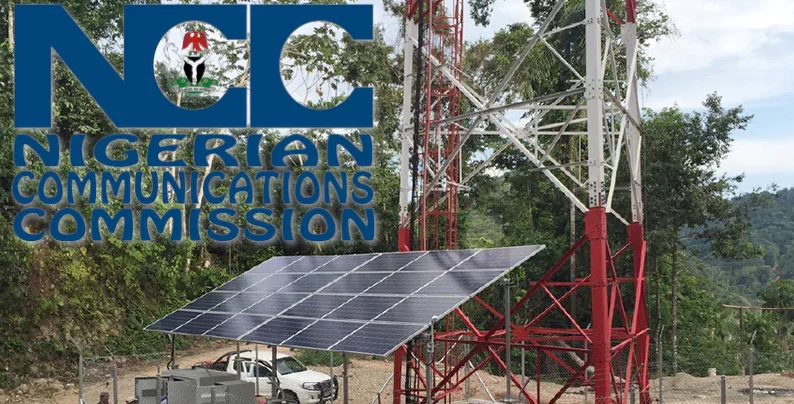Published
12 months agoon

Efforts are on top gear by the Nigerian Communications Commission (NCC) to introduce a policy to encourage green energy usage in the country’s $75.6 billion-worth telecommunications industry.
The executive vice chairman of the Commission, Professor Umar Danbatta disclosed this at the opening of a two-day Roundtable with Academia, Industry and Other Stakeholders held in Lagos on Wednesday.
The event, which played host to academic researchers and telecoms players focused on the theme: Refocusing Academic Research Towards Alternative Clean Energy: Panacea to Paucity of Energy in the Telecoms Sector.
Speaking through Engr. Ubale Maska, the Executive Commissioner, Tehcnical Standard, NCC, the Danbatta said the Commission is in the process of introducing a policy to encourage ethical energy sourcing in the telecommunications sector.
He said, “This policy will serve as a framework for telecom service providers to adopt clean and sustainable energy sources, reducing their carbon footprint and contributing to a greener future.
“We believe that this policy will not only benefit the environment but also drive innovation and create new business opportunities within the industry.”
He however noted that achieving the objectives requires collaboration and partnership with academia and other stakeholders.
The NCC boss said that the academia plays a crucial role in advancing research and innovation that can transform industries.
As such, “we need your expertise, knowledge, and insights to guide us in developing feasible alternative sources of clean energy that the telecommunications industry can leverage for a sustainable energy supply,” he said.
He said players in the telecommunications industry are confronted by the urgent need to address the challenges posed by climate change and the increasing demand for energy.
The telecom sector, like many other industries, he noted, has a significant role to play in transitioning to a sustainable energy future.
He further stated: “It is our responsibility to ensure that the growth of the telecom sector is achieved in a manner that is environmentally friendly and in alignment with the Sustainable Development Goals (SDGs).
“The Commission recognizes the importance of clean energy usage in the telecommunications sector, and we are committed to promoting regulatory initiatives that encourage the adoption of renewable and ethical energy sources.
“Our goal is to safeguard the environment for consumers and other users of telecom services while also contributing to the achievement of net-zero emissions.”
Studies have shown that renewables and energy efficiency, coupled with electrification, can provide over 90 percent of the necessary reductions in energy-related carbon emissions.
This presents a significant opportunity for the telecommunications sector to contribute to the world’s energy transformation. By increasing the use of electricity sourced from renewables, the industry can accelerate the transition to a sustainable energy future.
An earlier report by BUSINESS METRICS revealed that operators in the sector commits a good percentage of their capital expenditure (CAPEX) and operating expenditure (OPEX) to procuring and maintaining diesel generators to power their base stations across the country.
The operators have lamented that with an epileptic national power grid and capital-intensive alternative power sourcing relying on generators, the need to transition into renewable energy mix is now imperative.
In his welcome address, Engr Maska said the Regional Roundtable is thoughtfully structured to engage in insightful panel discussions that will deepen the contributions of all participants.
Four panel discussions that followed lead papers at the event are: Exploring Various Clean Energy Sources to Improve Energy Efficiency- This discussion will delve into the diverse clean energy options available and how they can be harnessed to optimize energy efficiency in the Telecoms Sector; Current Challenges in Developing Clean Energy- We shall address the hurdles and obstacles hindering the widespread adoption of clean energy solutions and collaboratively seek ways to overcome them.
Others included Infrastructure for Clean Energy and the Cost Effect to Industry- This discussion will focus on the necessary infrastructure required for clean energy implementation and the financial implications on the industry; and Development of Innovative Financing Models to Reduce CAPEX for Telecoms Operators- Here, we shall explore pioneering financing models that can provide cost-effective and affordable alternatives to traditional energy sources, easing the burden on telecom operators and encouraging the adoption of clean energy solutions.
“We are confident that these panel discussions will lead us to identify concrete strategies and solutions that align with our theme, enabling us to foster a greener, more sustainable Telecoms Sector,” he said.














